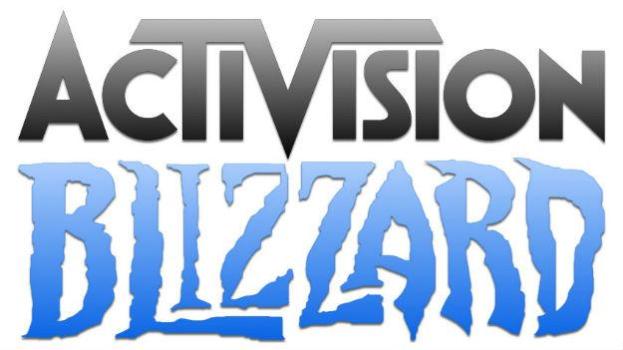
Activision Blizzard is now an independent company following an $8.2 billion buyout from an investor group led by CEO Bobby Kotick of its former parent company, Vivendi, a press release confirms. The particulars of the transaction see the newly independent publisher buying back 429 million shares of stock from Vivendi for $5.83 billion while the investor group, which also includes Activision co-chairman Brian Kelly and Chinese investment firm Tencent Holdings, buys another 172 million shares for $2.34 billion.

The completed sale leaves Kotick’s investment group in the lead shareholder position, with 25-percent of the stock. Vivendi hangs onto 12-percent of the company in the deal while the rest of the parent’s former 61-percent majority stake becomes public shares. The move is largely the result of Vivendi’s failed entry into the telecommunications market that left it with $17 billion in debt. One debt reduction measure considered by the company would have involved extracting $3 billion from Activision, a move that would have left the game publisher depleted and in a precarious position.
That wouldn’t have been a good situation for either company. Vivendi could pay down some of its debt, sure, but at the cost of crippling one of its profitable holdings in Activision Blizzard. The buyout gives the now-former parent company an opportunity to ease some financial strain, with the $8 billion erasing a significant portion of its $17 billion debt. Activision, meanwhile, begins life as an independent with $3 billion in cash on hand “to preserve financial stability,” as Kotick said in a statement.
In short, this was a defensive move that benefits both companies in the long run. Vivendi continues to own a sizable chunk of a profitable entertainment company while Activision, led by Kotick, is free to adjust its strategies and pursue new money-making opportunities. The publisher maintains a rich portfolio for now, headlined by the success of Call of Duty and Skylanders, but some fresh successes will be needed as those franchises face increased competition and the aging World of Warcraft‘s subscriber numbers continue to slip.

There’s no hint in the buyout announcement of how Activision’s strategy might change as an independent, though there’s opportunity in all three of the above-mentioned franchises. The launch of Microsoft and Sony’s competing next-gen consoles in late 2013 could potentially change the face of online gaming in the coming years as the cutting edge tech takes better advantage of high speed Internet and cloud-based computation than the previous-gen examples did.
Activision is already testing new models for Call of Duty with the China-exclusive (for now) Call of Duty Online, a free-to-play first-person shooter built on the core elements of the franchise’s competitive multiplayer component. The Tencent-published game entered its open beta phase earlier this year. If successful, it could inform the beginnings of a new financial model for Call of Duty in the next-gen. Many industry observers and analysts have suggested that the series could benefit from stripping the contents of the annual release offering to just the solo campaign and breaking out multiplayer as a separate entity driven by newer micropayment structures.
As a younger and fresher franchise, Skylanders faces fewer immediate threats than Call of Duty does, though the imminent arrival of toy-meets-video game releases like Disney Infinity and Angry Birds Star Wars II Telepods suggests that competitors are picking up on the brilliant success of pairing a physical action figure with an interactive experience. Next-gen hardware creates new opportunities here as well, though Activision will likely stick to the strategy that’s been working so far for Skylanders, for the time being at least.

A majority of the series’ younger target audience likely won’t be gaming on PlayStation 4 or Xbox One consoles in 2013/2014, so expect Activision to carry on with its efforts to bring new content to the older and more affordable consoles. Any expansion for Skylanders will likely move more in the direction of carrying the game into mobile markets. The series already has a presence in the iOS/Android marketplaces, but it hasn’t achieved the success that it has on dedicated gaming platforms. Activision will likely try to grow its influence in the world’s most rapidly growing gaming sector.
World of Warcraft is the most difficult to predict. The Blizzard team has done a great job of keeping the massively multiplayer online role-playing game alive and vital for almost 10 years, but it is increasingly seen as a relic of a different era in online gaming. A fuller embrace of a free-to-play structure for WoW is likely to happen at some point, but Blizzard’s future is in whatever’s coming next. For years now, we’ve been hearing about the developer’s so-called Project Titan, which is expected to be the studio’s successor to WoW. Little is known about what form it will take, but it’s probably going to draw more from the current free-to-play/microtransaction-driven income models than it does from its predecessor’s subscription-based approach.
These three franchises form the money-making core of Activision, but there are other opportunities as well, in the coming launch of Destiny, from Halo creator Bungie, and in any number of arenas that haven’t yet been revealed. Many of these changes were likely to happen with or without the buyout, but the shift in ownership leaves both companies in a much stronger place. That’s a win for gamers, as well. Activision won’t be crippled by Vivendi’s losses; instead, the game publisher walks away, flush with cash and income-earning assets, leaving it better able to compete in the next hardware generation.
Editors' Recommendations
- Xbox Game Pass gets its first Activision Blizzard game very soon
- Xbox lays off 1,900 developers, cancels Blizzard’s survival game
- Bobby Kotick leaves Activation Blizzard next week amid Xbox shake ups
- Microsoft has acquired Activision Blizzard: What does that mean for you?
- Microsoft finally closes its $69B Activision Blizzard acquisition


